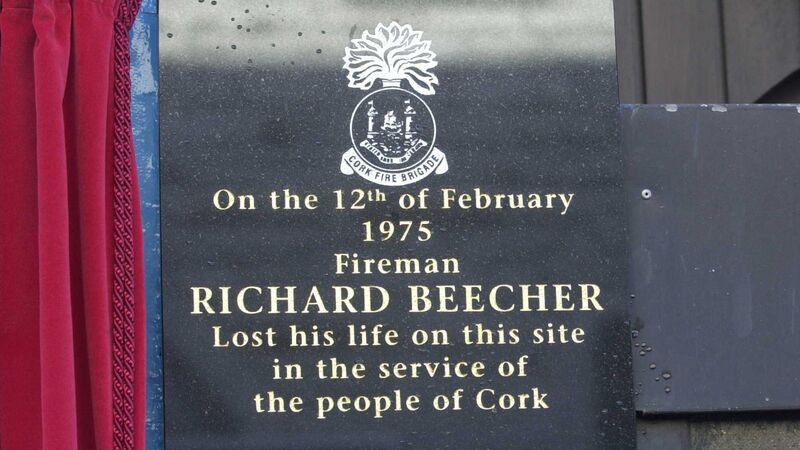Michael Moynihan: I'll never forget the giant who lost his life to keep people of Cork safe

A plaque which was erected on the wall of the building on Washington street in which Fire Fighter Richard Beecher lost his life in the line of duty in February 1975.Pic: Gavin Browne
I’m a week late with this anniversary, but better late than never.
If you walk along Washington Street then you may notice something on the wall as you come past the barber shop en route to the traffic lights at the Grand Parade — on the Singer’s Corner side of the street.












